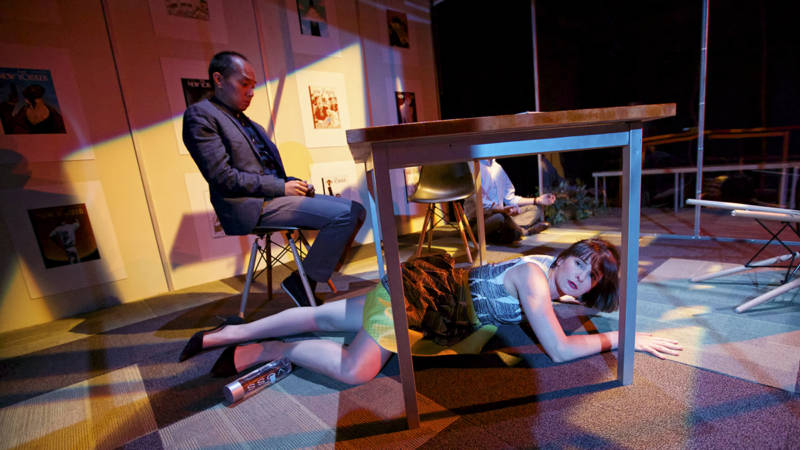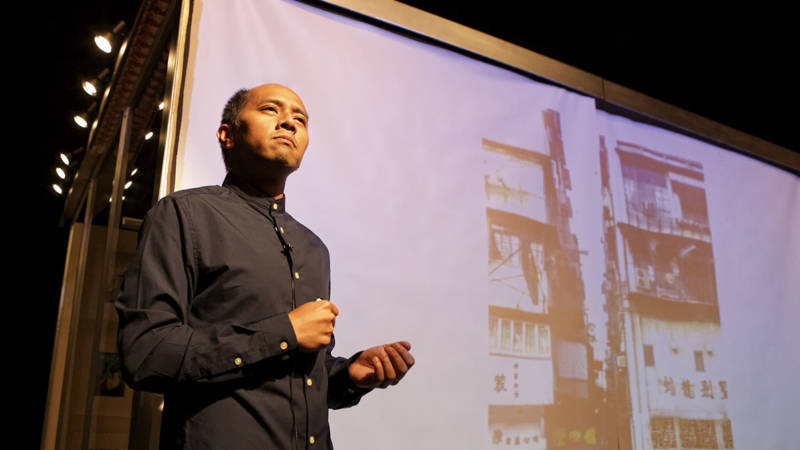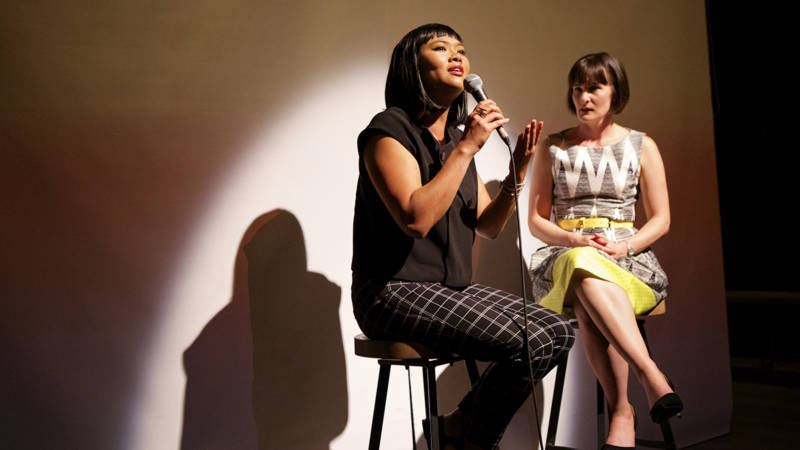Lying is fun. Catching liars — that’s fun too. What’s not fun is being lied to. And getting caught in a lie, well, that can be an uncomfortable experience. The best thing about Christopher Chen’s Caught, currently running at the Shotgun Players’ Ashby Stage in Berkeley, is that it’s partially about lying. Chen’s play is also about deceit and trickery. His handling of those themes can be entertaining, but they’re never as compelling as the lying, and serve to undercut a great deal of the power of the play.
Chen starts with a slight shift in perspective. Instead of a play, what we’re seeing is a talk in an art gallery by a dissident Chinese artist, Lin Bo. We know the talk is as fake as any play we might see, including the one before us. Still, the conceit works. Lin’s gallery lecture has the feel of truth. The politically oppressed artist — abused in his own country and celebrated in America — has a long tradition, starting with the Soviet Union and now continuing with China; think of the West’s embrace of Ai Weiwei.
Chen catches the way in which these presentations always slip back and forth between descriptions of torture — “I was hit with a bamboo switch and sometimes an electrified club” — and the subtle scolding of liberal audiences eager to embrace radical art and freedom: “Is this really provocative art? The answer…is no.” When Lin mentions a New Yorker profile of him and his upcoming memoir, it’s merely the cultural frosting on a very stale cake.
The ease of the set up allows Chen to subtly undermine what we’re hearing. Lin talks of another dissident artist,Yu Rong, whom the authorities might have confused Lin with, and asks, “Was Yu Rong the true target all along?” The answer, of course, if you’re listening carefully or enjoy bad puns on Asian names, is yes. You, the audience members, are the target. And as the target of Chen’s puzzle box of a play, you will often be wrong.

As the lecture ends, the entire stage erupts into a swanky office at the New Yorker (a stunning achievement by set designer Nina Ball) and a more traditional play appears to begin. Lin is meeting with the writer of the recent profile on him, Joyce Anderson, and her editor, Bob Levy — they just have a few questions, some details about his story that they need to clear up to feel comfortable. You always know you’re in trouble when others need to be comfortable.



